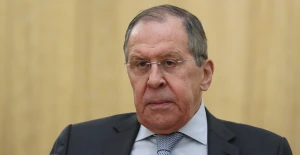
Lithuania says five Baltic ports are ready to join grain exports
The Baltic states are ready to provide the capacities of five major ports on their territory to participate in the safe export of Ukrainian grain to world markets
This was announced on Twitter by Lithuanian Foreign Minister Gabrielius Landsbergis.
The countries have officially appealed to the European Commission to use the Baltic Sea Route to resolve the problems that have arisen after Russia's refusal to continue the Black Sea Grain Initiative.
"The Baltic States have five ports that could be used to safely export much more of Ukraine's grain. We are officially proposing that the European Commission help us to increase rail capacity on the Baltic Sea Route," the Lithuanian official wrote.
According to Ukrinform, on July 25 in Brussels, European Commission representative Miriam Garcia Ferrer confirmed that the European Commission had received an appeal from the Baltic states to organize a route for the transportation of Ukrainian grain, and the relevant proposals are currently being studied.
Today, proposals to involve the Baltic ports in the export of Ukrainian grain for further export to world markets were considered at the level of the EU Council of Ministers for Agriculture and Fisheries, including the possibility of allocating subsidies for the development of railroad connections between EU countries on the borders with Ukraine and Baltic ports, as well as the transfer of a significant number of customs and border procedures from checkpoints on the borders of these countries with Ukraine directly to the Baltic ports, where there is a developed infrastructure.
Russia's termination of the "grain deal"
On July 16, the last ship loaded with Ukrainian agricultural products under the initiative left the port of Odesa. On 17 July, Russia announced the termination of the grain deal. In response, Volodymyr Zelenskyy said that it was necessary to continue using the grain corridor even despite Russia's withdrawal from the agreement. And Kuleba began urgent consultations at the UN.
The White House condemned Russia's withdrawal from the grain deal, which played a crucial role in reducing global food prices.
On 18 July, Russian presidential spokesman Dmitry Peskov said there were "certain risks" for parties trying to resume the Black Sea Grain Initiative without Russia's participation.
European Commission President Ursula von der Leyen said that it was critical to restore transport links across the Black Sea to provide food to the world's most vulnerable countries and to preserve the ability to export Ukrainian goods.
On 19 July, it was reported that Ukraine was considering transporting food as part of the grain initiative through the territorial waters of Bulgaria and neighbouring Romania.
At the same time, the Russian Ministry of Defence issued a statement threatening ships heading to Ukraine's Black Sea ports. On the same day, Putin named the conditions for Russia's return to the grain deal and demanded their immediate implementation
On July 21, Recep Tayyip Erdogan said he wanted to discuss the extension of the grain deal with his Russian counterpart Vladimir Putin and expressed confidence that it will work again.
On July 25, the Defence Intelligence of Ukraine released a report to the Russian leadership, which outlined the technologies used to prevent grain exports from Ukraine, indicating that the grain deal was deliberately disrupted.
On the same day, the US State Department announced that Russia was preparing a false flag operation in the Black Sea on a ship in international waters amid the shelling of Odesa and the Danube infrastructure.
- News












































